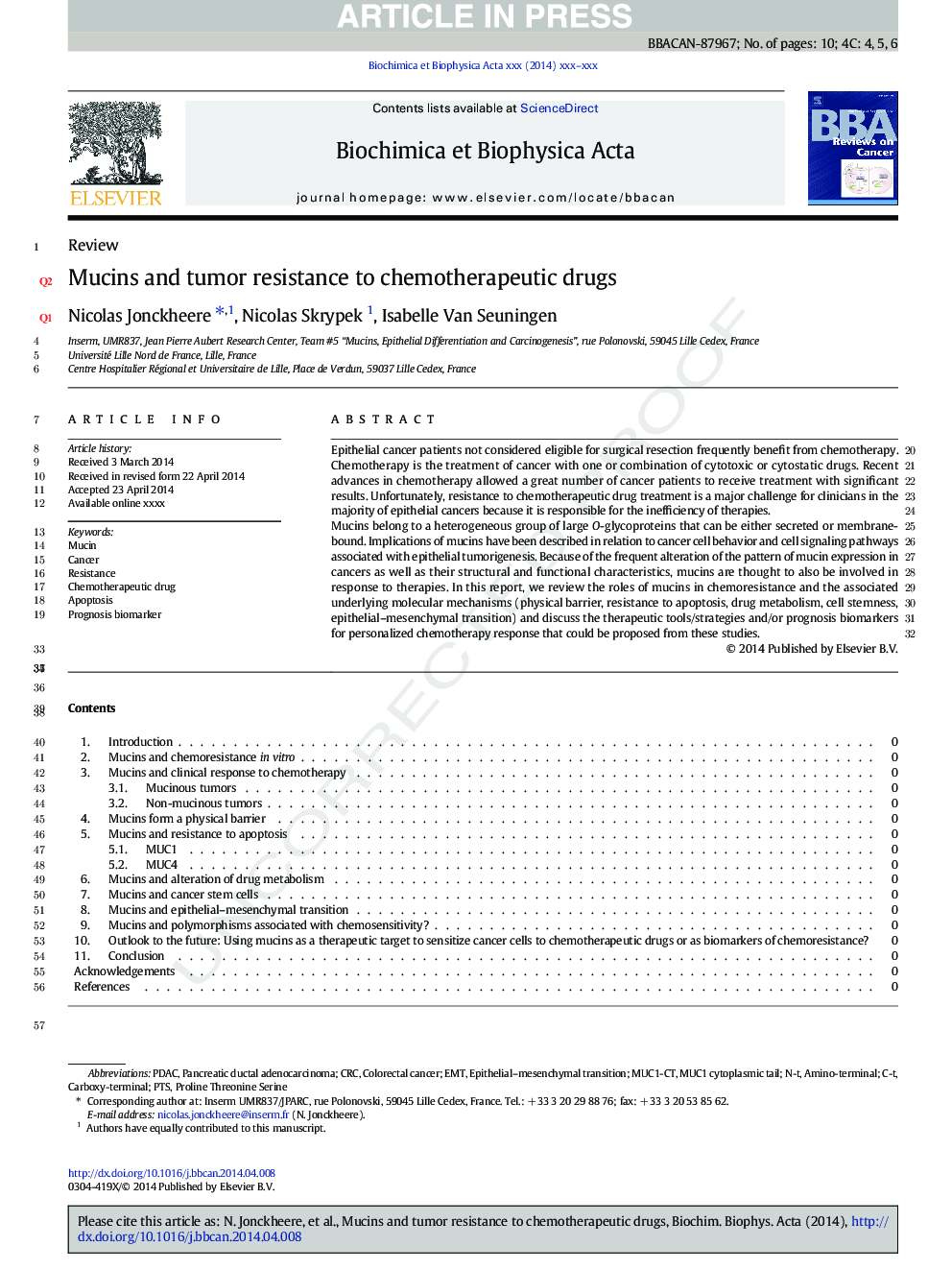| Article ID | Journal | Published Year | Pages | File Type |
|---|---|---|---|---|
| 10895596 | Biochimica et Biophysica Acta (BBA) - Reviews on Cancer | 2014 | 10 Pages |
Abstract
Mucins belong to a heterogeneous group of large O-glycoproteins that can be either secreted or membrane-bound. Implications of mucins have been described in relation to cancer cell behavior and cell signaling pathways associated with epithelial tumorigenesis. Because of the frequent alteration of the pattern of mucin expression in cancers as well as their structural and functional characteristics, mucins are thought to also be involved in response to therapies. In this report, we review the roles of mucins in chemoresistance and the associated underlying molecular mechanisms (physical barrier, resistance to apoptosis, drug metabolism, cell stemness, epithelial-mesenchymal transition) and discuss the therapeutic tools/strategies and/or prognosis biomarkers for personalized chemotherapy that could be proposed from these studies.
Keywords
PDAC5-FUC-T5-fluoro-uracileVNTRPTSROSPancreatic ductal adenocarcinomaamino-terminalvariable number tandem repeatEMTApoptosisChemotherapeutic drugPrognosis biomarkerCancerColorectal cancerResistanceMucinSingle nucleotide polymorphismsSNPCRCcarboxy-terminalEpithelial–mesenchymal transitionReactive oxygen species
Related Topics
Life Sciences
Biochemistry, Genetics and Molecular Biology
Cancer Research
Authors
Nicolas Jonckheere, Nicolas Skrypek, Isabelle Van Seuningen,
